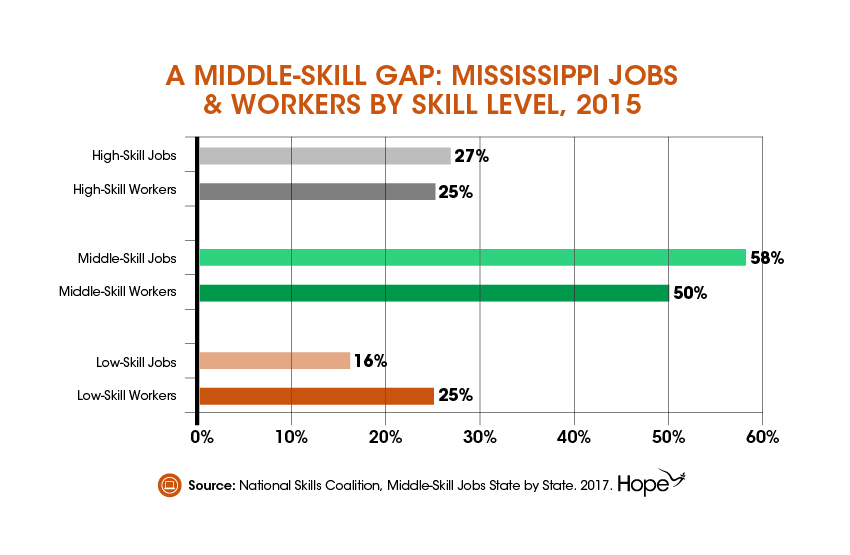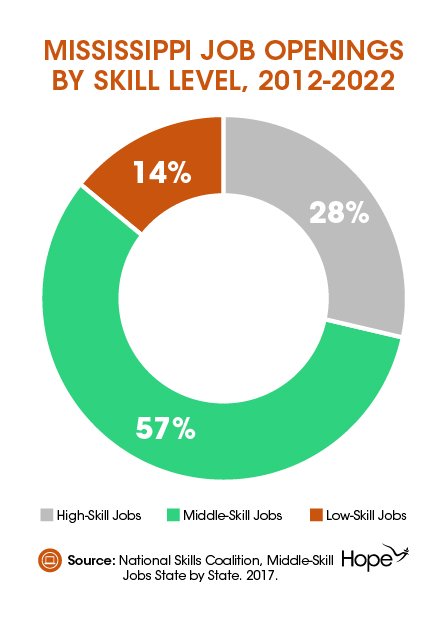Mississippi’s Forgotten Middle: The Middle-Skills Jobs Gap
February 8th, 2017
Pairing skilled workers with quality, high-paying jobs is one way to ensure Mississippi families succeed. However, limited access to skills training and low educational attainment keeps many workers from filling good paying skilled jobs. This gap between middle-skill positions and a comparably skilled workforce limits productivity for employers and access to jobs that support self-sufficiency for working families. Bridging the gap starts with investments in working families and the state economy via inclusive skills training opportunities.
The Middle-Skill Gap
Middle-skill jobs are typically technical positions, which pay higher-than-average wages and salaries and require some education or training past a high school diploma, but less than a four-year degree. By comparison, a low-skill job generally requires little training and has no education requirement, while a high-skill job requires significant training and a minimum four-year college degree.
Often accompanied by reliable schedules, above average pay and benefits packages (including health care, paid time off and sick leave), full-time middle-skill occupations can offer greater economic security to workers and their families.
A 2016 National Skills Coalition analysis showed every state had too few skilled workers to fill all open middle-skilled positions. This difference between the available skilled workforce and corresponding job openings is called the middle-skill gap.
In 2015, middle-skill jobs represented 58 percent of Mississippi’s labor market (compared to 16 percent low-skill jobs and 27 percent high-skill jobs), yet only 50 percent of the state’s workers were trained at the middle-skill level. Due to this shortage, employers looking to fill middle-skill positions have difficulty finding sufficiently trained workers and positions go unfilled.
Demand for Middle-Skill Jobs
Click to enlarge
Middle-skill jobs in truck driving, nursing, welding, construction, manufacturing and other fields underpin the Mississippi and national economies. These same professions, which helped establish the post-war middle class, continue to thrive. National Skills Coalition estimates 57 percent of Mississippi job openings between 2012 and 2022 will be middle-skill.
Continued demand for skilled workers in essential sectors will require sustained investment in training programs that upskill the existing workforce. Programs and policies that support skills training through workforce development are vital investments in working families and the state economy. Expanding access and opportunity through skills training – with the purposeful inclusion of people of color, women, and low-income populations – ensures a more economically secure Mississippi for all working families.









